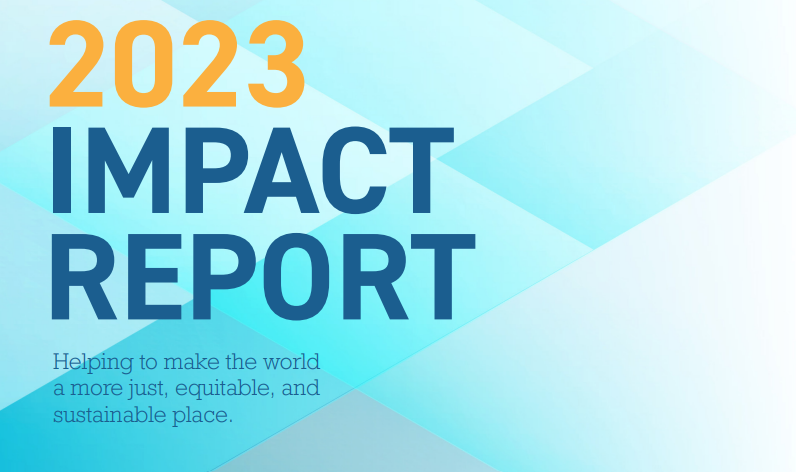At New Venture Fund (NVF) we are proud of the work done by the more than 130 charitable projects that we support as they take on the world’s greatest challenges. But we are equally proud of the projects that started at NVF and have since left, now standing alone as independent charities.
Project incubation is one of the ways that New Venture Fund and fiscal sponsorship are set apart from other segments of philanthropy. Fundamental to fiscal sponsorship is making it easier for a new nonprofit effort to get off the ground and start making an impact. We help turn what may start as only an idea or seed funding into an operational non-profit that advances our values of a more just, equitable, and sustainable future.
By relieving changemakers of burdensome operational hurdles, we lower the bar for entry into philanthropy. This allows for the quicker deployment of charitable capital and an ability to respond to emerging challenges with far greater urgency. We also allow nonprofits to remain focused on their mission and growth, rather than administrative, finance, and compliance burdens.
Ultimately many projects evolve into entities that they don’t need the support of a fiscal sponsor and spin off to become independent organizations—a process we are proud to support. Since NVF was founded in 2006, we have incubated hundreds of projects, many of which still operate today. Often, we have jumpstarted an effort that may never have existed without the support of a fiscal sponsor.
Among the many incubation success stories at New Venture Fund is the Malala Fund. Malala Yousafzai is a Pakistani activist who has led a fight for female educational opportunity since she was just a child. In 2012, at age 15, Malala survived an attempted murder, which sparked worldwide outrage, as well as a wealth of support for her and her mission, including an influx of charitable contributions. Malala, who would later receive the Nobel Prize for her activism, needed a way to harness these resources for good. That’s where NVF was able to help. In the summer of 2013, The Malala Fund became a fiscally sponsored project of the New Venture Fund, putting in place an infrastructure to process and deploy funding to give girls around the world a chance to learn. By 2017, it had become an established leader in its space and spun off from New Venture Fund to become an independent nonprofit.
Another example of NVF’s incubation pipeline is We Mean Business, a coalition working to drive the private sector to be a leader in the fight against climate change. Launched in 2014 as an NVF project, the coalition quickly got to work make its voice heard in the development of the Paris Agreement, ultimately being cited in the final 2015 climate pact. By 2019, it had gained commitments to action to reduce carbon from more 1,000 companies, and the next year the project spun off to form an independent nonprofit. Today it continues to be a leading voice in the climate change dialogue, bringing together more than 10,000 businesses who are taking bold climate action.
Other established nonprofits that began as NVF-incubated projects include Ideas42, an academic-minded effort to use behavioral science to take on complex societal and cultural challenges. Kode with Klossy is working to break down equity gaps in the economy and tech sectors, with a focus on STEAM education for young women. The Center for Disaster Philanthropy is there when people are at their most desperate, helping to increase the efficiency and effectiveness of philanthropic resources that come to support an impacted city, state, or region.
All these organizations, now making the world a better place, have their roots at New Venture Fund. By providing solid footing to begin their work, NVF helped each to become a stable and thriving independent organization. The incubation that fiscal sponsorship enables is only part of what makes New Venture Fund special, but we believe it can play a powerful role responding the growing and ever-shifting challenges facing the planet.



